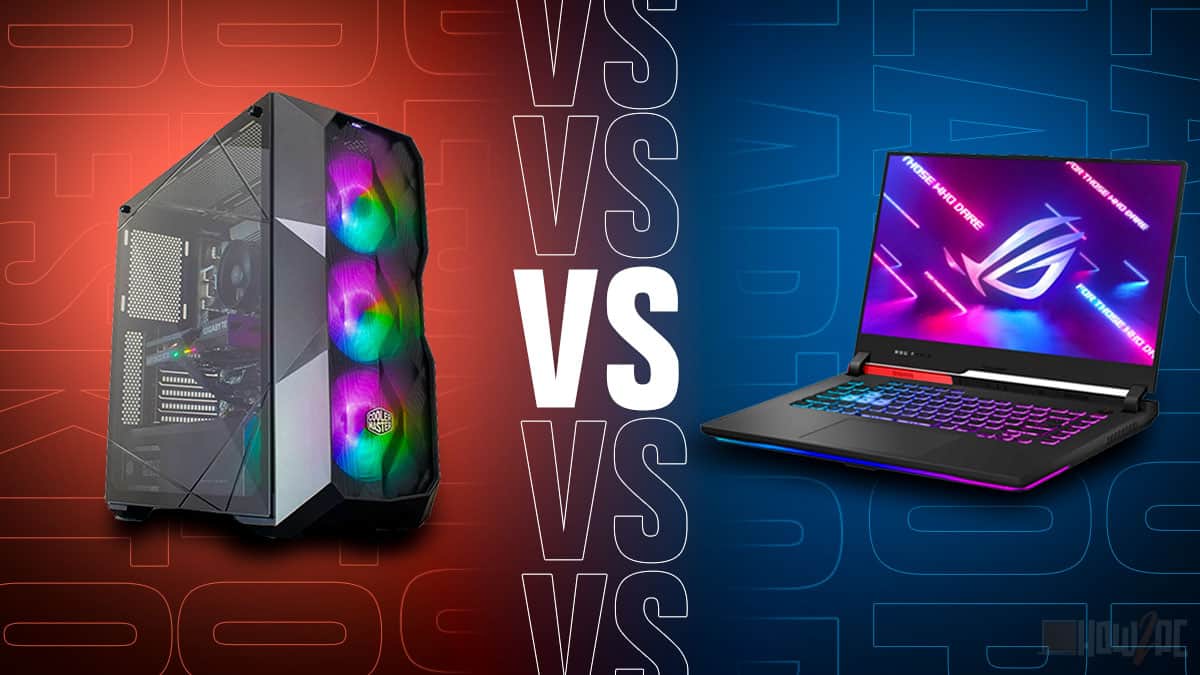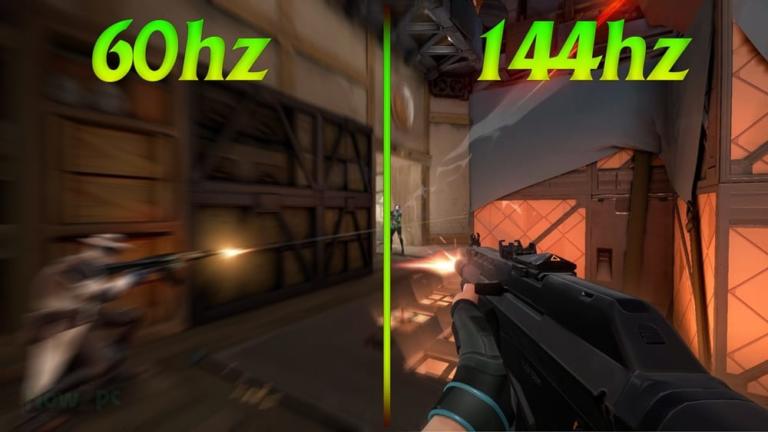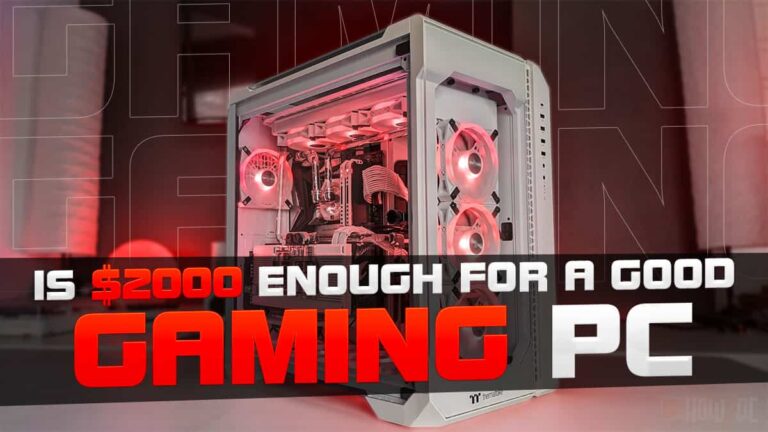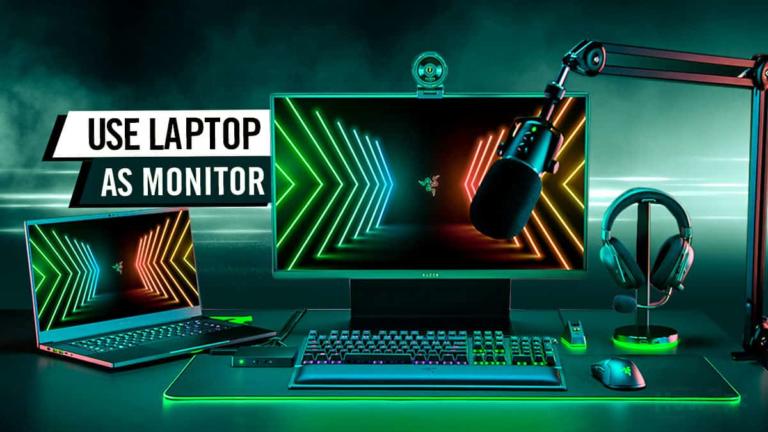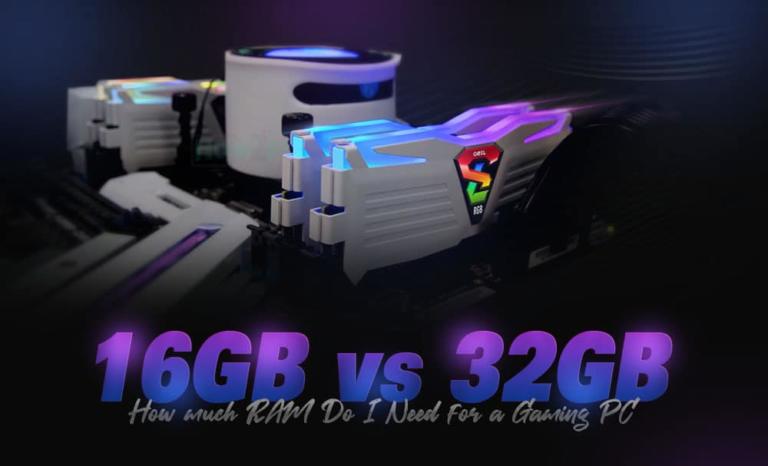Unable to figure out whether you should go with a gaming laptop or a gaming desktop? Well, I don’t blame you, in this day and age choosing between a laptop and a desktop has become more difficult than ever.
The lines that once separated a gaming laptop and a gaming desktop have seemingly been blurring over the last couple of years or so.
Despite that, on an individual level using the desktop and the laptop is fundamentally different therefore I don’t want you to make a wrong decision and regret it later on.
For that purpose, in this article, I am going to fully compare gaming laptops and gaming desktops on the following basis.
- Availability and Ease of Use
- Portability and Daily Use
- Upgradability and Customization
- Gaming Performance
- Cost of Owing
For the comparison, the utmost priority will be given to what the machine is like to use and live daily with.
So, without further ado let’s dive right into our comparison of gaming laptops and gaming desktops.
Availability and Ease of Setting Up
In this section, we will see which product presents the least barriers to entry and the ease of setting up each device.
Gaming Desktop
If you are not into gaming PCs, then building or buying a desktop computer can be a hectic process. Not only do you need to have a lot of prior knowledge regarding each PC component but also should know how to assemble a gaming desktop.
Assembling a gaming desktop, yourself for the first time can leave you quite anxious hence most first-time PC gamers don’t go down this route but rather get a prebuilt gaming PC.
In that case, the buying process requires some technicalities and in general, is not as breezy as just walking into a store and coming home with a machine.
Nevertheless, once you finally acquire a gaming desktop, setting it up may require additional effort as well. This is because after booting it up for the first time you will need to install certain drivers for Windows and also configure other Windows settings to get your desktop up and running.
Gaming Laptop
When it comes to laptops, the barrier to entry is relatively non-existent. You can literally walk into your favorite retailer, comb through the different gaming laptops they have on display, and get the one that you like the most.
Of course, that is rather a simplified version, and though you might need to do some research to find out the best gaming laptop in your respective budget, that still holds no candle to the amount of research you have to do for buying a gaming desktop.
Setting up the laptop is also simple. Just boot it up, install your favorite game, and voila it’s done. You can start playing games right away without any pesky software or settings option bothering your gaming experience.
Winner: Gaming Laptop
Portability and Daily Use
The following section will contain how easy you can carry your gaming machine on the go and how easy it is to cope with daily.
Gaming Desktop
The desktop is meant to be placed on a desk. It serves the purpose of a workstation rather than a mobile machine. Therefore, if you are looking for a portable gaming machine that you can carry daily without any trouble then this is definitely not the direction you should be looking at.
Gaming Laptop
A laptop was designed as a portable solution to a fully-fledged desktop. Since these machines inherently carry a portable design, it is no brainer that they make for great portable companions.
Typically, 15.6 inches is the norm for a gaming laptop size. A gaming laptop of this size will weigh around 1.5-2kg while also maintaining a thin profile with a thickness of fewer than 3 inches.
From the stated dimension it should be clear how easy and facilitating it is to carry a gaming laptop daily everywhere you go.
Winner: Gaming Laptop
Upgradability and Customization
I know many of you want to individualize your gaming desktops so in this section we will find out which product is better in that regard.
Gaming Desktop
The desktop PC is undoubtedly the king of customization. You not only get to choose the specification you want but also get to decide on how your desktop PC looks.
This especially holds true for custom-built PCs. By buying unique and different-looking cases, RGB lighting, and other accessories you can truly make the desktop PC your own.
Gaming Laptop
When buying a gaming laptop besides having the option to customize some specifications to your preference and choose the color according to your liking, there isn’t much else you can do to make your laptop distinctly yours.
The same is true after you have bought the laptop because there aren’t many 3rd party accessories that can be used for laptop customization.
Winner: Gaming Desktop
Gaming Performance
The performance is the aspect that is most likely to gravitate consumers towards a gaming laptop or a desktop.
Gaming Desktop
For performance numbers to be high, you need a chassis that can not only fit high-end components but also have enough cooling for these components to perform at their maximum capability.
When you look at it, a desktop PC is basically nothing more than a box albeit a box with a lot of empty space for airflow. Therefore, for the same specifications, the components that are inside the gaming desktop will perform much better due to better cooling.
This is because each component has a thermal limit of 90-100°C after which it starts to cut down on the utilization. By doing this a component sheds its load and prevents the buildup of more heat while doing so greatly affects the performance negatively.
Since a gaming desktop doesn’t have any cooling concerns components here can ramp up to the extreme, if possible, hence delivering more performance than a comparably equipped laptop.
Gaming Laptop
As stated in the previous section a laptop was invented to be a portable version of the computer. To achieve this, the design of the chassis had to be kept compact.
This design restriction and size constraint mean that the full-fledged hardware cannot be used in laptops and hence a downgraded or less powerful version of the same hardware has to be used.
Also, since a laptop is very compact it does not have enough cooling potential. The hardware that goes inside a computer generates a lot of heat to work. In a laptop, the heat cannot be quickly dispatched to the surroundings due to the compact design, and hence manufacturers tend to use lower TDP components in laptops.
This is the reason components manufacturers like Intel and AMD make two separate chips for desktops and laptops. The one that goes in a laptop is the toned-down performance version of the one that goes in a desktop therefore, a laptop is subjected to lower performance when compared with a similarly equipped gaming desktop.
Head-to-head Comparison
In order to get a better understanding of the performance difference between a similarly specced gaming desktop and laptop let’s do a head-by-head comparison.
For the comparison, the following products will be used
- HP Victus 16 gaming laptop
- HP Pavilion gaming desktop
| Specifications | HP Victus 16 Gaming Laptop | HP Pavilion Gaming Desktop |
|---|---|---|
| CPU | AMD Ryzen 5 5600H | AMD Ryzen 5 5600G |
| GPU | AMD Radeon RX 5500M | AMD RX 5500 |
| RAM | 8GB RAM | 8GB RAM |
| Storage | 512GB SSD | 512GB SSD |
| OS | Windows 10 64-bit | Windows 10 64-bit |
To keep the comparison as fair as possible, both the products come from the same manufacturer, have the same specs, and come at the same price point of around $850. This will allow us to get a better understanding of the performance difference between a laptop and a desktop solely based on the technical limits of each of the machines.
On paper, both the HP Victus gaming laptop and the Hp Pavilion gaming desktop are rocking the AMD Ryzen 5 5600 processor. This is the latest 6 core 12 thread processor from AMD built on their latest RDNA architecture.
The difference however is that the Ryzen variant used in the laptop is a toned-down version of the desktop. While the core count is still the same, the performance however is not.
The same also holds true for the graphics card. The Radeon RX 5500 on the desktop has a much higher TDP than its laptop counterpart which allows it to boost higher hence resulting in much better performance numbers.
The performance difference is also quite apparent when gaming. During my testing, the framerate difference between the two was quite noticeable, with gaming desktops delivering up to 15% better frame rate in most games.
The average frame rate achieved on games that were tested on the desktop PC as well as the laptop was as follows:
Average FPS on Gaming Desktop
68 FPS in Shadow of the Tomb Raider, 90 FPS in CoD Warzone, 116 FPS in Apex Legends, and 120 FPS in Fortnite.
These games were tested at 1080p resolution and at the medium graphic preset that each game had to offer.
Average FPS on Gaming Laptop
57 FPS in Shadow of the Tomb Raider, 82 FPS in CoD Warzone, 98 FPS in Apex Legends, 100 FPS in Fortnite.
To keep the comparison as fair as possible, the aforementioned games were tested at 1080p resolution and at the medium graphic settings for each game.
The above benchmarks leave no further doubt that the gaming desktop reigns supreme as the undisputed performance king in this comparison.
Despite even pitching the highly acclaimed HP Victus which is regarded as the best gaming laptop under 800 dollars against a relatively mediocre gaming desktop, its performance couldn’t even hold a candle to what the desktop PC offered.
Winner: Gaming Desktop
Cost of Purchase and Ownership
In this section, we will not only be looking at the cost of purchase but also the cost of ownership over the lifetime of the product. Evaluating both will lead us to a more accurate depiction of the cost.
Gaming Desktop
A gaming desktop with the same specification will run a little cheaper. The difference however is not as staggering as it once used to be.
Generally, you are looking at a price delta of $50-100. This is of course not accounting for custom-built desktop PCs.
When accounting for custom builds, the cost of gaming highly varies. This is because when building a desktop gaming PC, you have the freedom to source the parts from wherever you want hence by doing this you get to reap the benefit of discounts, promotions, or rebates.
This is however just the raw price of a gaming desktop, and as you would know with just a gaming desktop you cannot do anything unless you get proper peripherals. The peripheral set includes a monitor, a keyboard, and a mouse.
To get the actual price of a gaming desktop, we also have to factor in the price of these peripherals as well. This factor significantly drives up the upfront cost of gaming desktop since these peripherals cost the following.
- Monitor: A decent 1080p monitor like the AOC 24B2XH costs around $150.
- Mouse: A precise gaming mouse like the Razer Viper Mini cost around $30
- Keyboard: A reliable gaming keyboard like the Havit wired LED keyboard, cost around $20
Adding the price of the monitor, mouse, and keyboard to our desktop PC gives us a grand total of $968.
That being said, the PC, while requiring more upfront cost, turns out to be cheaper in the long run because of the upgradability factor. If any component expires or requires an update you can easily swap that particular rather than buying a new machine altogether.
Gaming Laptop
A laptop unlike the desktop comes in complete packages with a screen, keyboard and mouse attached. This aspect of the laptop drives up the initial cost of a laptop.
As we have seen in the desktop PC section, the amount for the essential peripherals amounts to $200.
Therefore, a laptop may seem more expensive but when the amount for a monitor, a mouse, and a keyboard is factored in, the result is that a gaming laptop comes out as being the cheaper option when compared with a gaming PC.
That being said, a gaming laptop will cost you more in the long run. This is mostly due to the fact that a gaming laptop is not serviceable hence if a component inside the laptop goes bad you will most likely need to replace the whole laptop.
Laptop repairs are generally more expensive than PC repairs hence adding to the long-term maintenance cost of the machine.
Winner: Tie (Both upfront and long-term cost considered)
Related Guides
Check out our price-focused prebuilt PC guides below.
- Best Desktop Gaming PC Under $500
- Best Desktop Gaming PC Under $800
- Best Desktop Gaming PC Under $1000
- Best Desktop Gaming PC Under $1500
- Best Desktop Gaming PC Under $2000
Check out our GPU-focused prebuilt PC guides below.
Check out our aesthetics-focused gaming PC guides below.
Conclusion
With the gaming laptop vs desktop comparison done, let’s quickly summarize everything before ending the article.
It cannot be denied that both the gaming laptop and the gaming desktop have their own strengths and weaknesses. In some areas, the laptop is better while in others the desktop takes the crown.
If we examine closely, the strengths and weaknesses of both of these products are closely related to the underlying use of these products.
A laptop is more geared towards portability and remote use while the desktop is more specifically designed to be used as a part of a workstation.
The following distribution can be used to evaluate the fundamentally different use cases of both of the gaming machines.
| Aspects | Gaming Laptop | Gaming Desktops |
|---|---|---|
| Portability | Winner | Loser |
| Ease of Use | Winner | Loser |
| Performance | Loser | Winner |
| Upfront Cost | Winner | Loser |
| Long-term Cost | Loser | Winner |
| Customization | Loser | Winner |
| Upgradability | Loser | Winner |
As you can see, the fundamental difference between the two dictates many of the aspects associated with these machines. So, to conclude I would like to relate these aspects of both machines with their use cases.
Gaming Laptop
A laptop has a desktop PC beat in portability, ease of use, daily carry, and upfront cost. All these attributes add up to making your every experience as easy as possible. Therefore, if you need more of an on-the-go machine and can sacrifice on performance for the added convenience then there is no denying that a gaming laptop should cater to you quite well.
Gaming Desktop
Gaming desktops are the undisputed performance champion in this comparison. Also, it edges out the laptop in other key areas such as long-term cost, customization, and upgradeability. Therefore, if you want the most powerful gaming machine possible that you can truly call your own then there is no better choice than a gaming desktop.
This finally puts this article to rest. Now before I sign off, do let me know in the comment section whether I missed any important aspect of a laptop or a desktop.
Also, share your preference as well? Do you like the portable gaming convenience of a laptop or like the hardcore gaming experience of a desktop PC?

